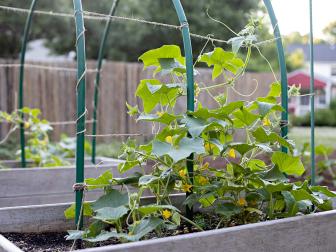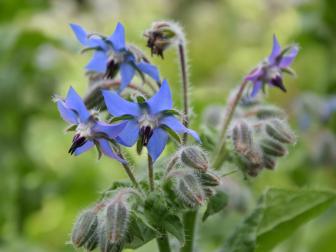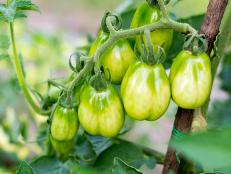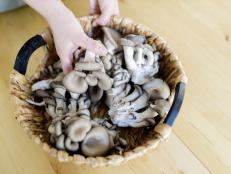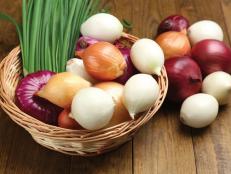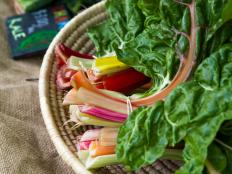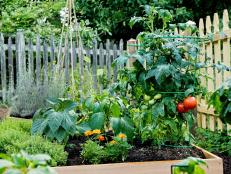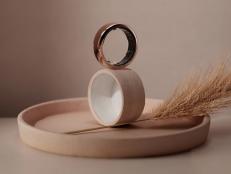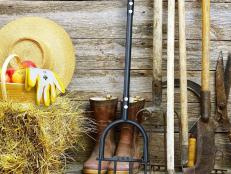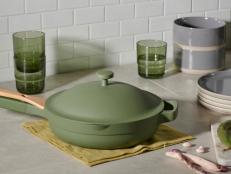Why Are My Cucumbers Bitter?
Cucumbers are one of summer’s best gifts — unless you bite into a bitter one. Find out the science behind why cucumbers are bitter and what you can do to prevent it.
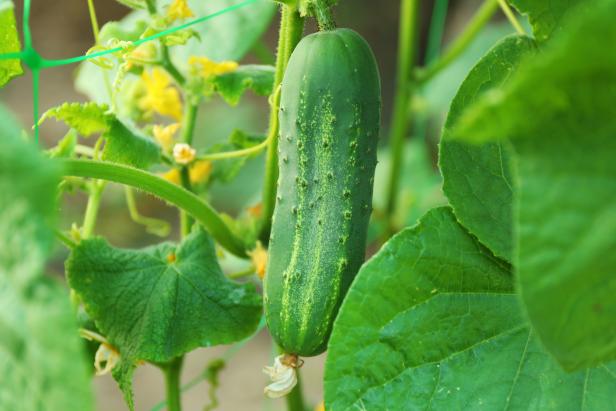
Shutterstock/Africa Studio
A cucumber's bitterness is caused by cucurbitacin, a bitter chemical that protects the plant from predators. Usually, cucurbitacin stays in the stem and leaves, but it can work its way into the fruit.
If you've ever bit into a homegrown cucumber and winced at the bitter taste, you're not alone. Why are cucumbers bitter and is there a way to fix or prevent this frustrating phenomenon?
Cucumbers hail from the family Cucurbitaceae, which is the gourd family of flowering plants. It contains about 975 species of plants, both food and ornamental, including:
- Cucumbers
- Gourds
- Melons
- Pumpkins
- Squashes
The plants from this family produce cucurbitacin, a bitter chemical that protects the plant from predators like cucumber beetles, squash bugs and slugs. Usually, cucurbitacin stays in the stem and leaves, but it can work its way into the fruit, causing bitter cucumbers. Cucumbers tend to grow bitter when the plant is under stress from inconsistent water, fluctuating temperatures or poor soil. The higher the level of the compound, the more bitter the fruit.
How to Grow Cucumbers
Get advice for planting, growing and harvesting cucumbers, including suggestions for types and varieties to grow, companion plants, and tips for solving common cucumber problems.
Are bitter cucumbers safe to eat? Wild cucumbers, used in Indian and Chinese medicine, have enough cucurbitacin to induce purgative qualities. Those strong fruits can cause food poisoning if eaten in large quantities.
But the ones we grow in our gardens and buy in our markets are unlikely to make you sick; they may, however, make you burp, thanks to those aforementioned gastric effects. (Luckily, there are burpless varieties — see below.)
Is There a Way to Fix Bitter Cucumbers?
Once a cuke takes on this flavor profile, it's difficult to remedy. That leaves you with prevention as the best cure. Here's how to fix bitter cucumbers — before they strike.
Plant them in the right soil. Before you plant, work several inches of compost and manure into your beds to nourish the soil and retain moisture. Plant cukes in a well-drained raised bed or mound. Then give them room to grow, spacing caged or trellised plants at least eight inches apart. If you're growing cucumbers in mounds, space those at least three feet apart.
Keep plants at an even temperature. Extreme heat and cold can cause bitter cucumbers. Wait until after the last frost date (when the soil is at least 60 degrees F) before planting. Then ensure your plant gets the right amount of sun for your climate. If you live in a cool location, plant in all-day full sun. But if you live in a warmer climate, plant so the vines get plenty of sun earlier in the day and aren't baked by late afternoon heat.
Water regularly. Letting plants go dry — especially when they are flowering – can cause the plant to become bitter. Water deeply once or twice a week or install a drip system that keeps the plants moist (but not wet). Gardeners say to water them only in the morning and keep the soil damp enough that, when you measure with your finger, it's still moist three inches below the surface.
Harvest on time. Cukes are ready to pick between 50-70 days after planting. When the flower at the blossom end drops off, you'll know it's time to harvest. Pick them frequently, since larger cucumbers don't taste as good (and tend to be more bitter) than smaller ones.
Best Companion Plants for Cucumbers
Discover companion planting techniques to boost your cucumber crop and avoid common pests like cucumber beetles and squash bugs.
What Do You Do With Bitter Cucumbers?
If you wind up with a batch of bitter cucumbers, you may be able to salvage at least part of the harvest.
Can You Eat Them?
If you have a cucumber that's too bitter to eat, compost it. But, if the bitterness has concentrated near the stem and in the skin (where it's most likely to settle), peel the cucumber and slice off an inch or two near the stem. Many people sprinkle on salt or sugar to balance out the bitter taste.
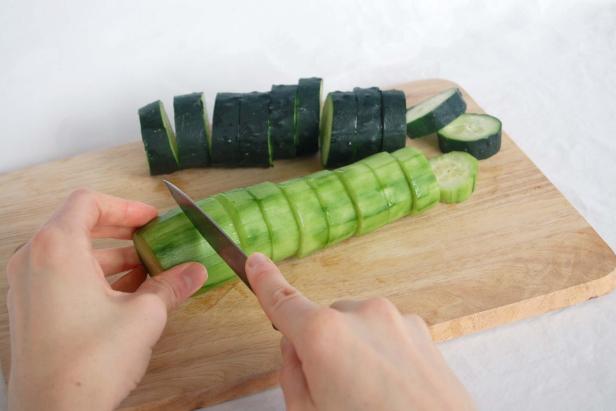
To eat a cucumber that's become bitter, peel the cucumber and slice off an inch or two near the stem to remove the portion that contains the bitter chemical cucurbitacin.
Can You Pickle Them?
While removing the skin and stem-end can reduce bitterness, it doesn't get rid of it entirely. Cooking and pickling don't reduce the cucurbitacin, either. But all is not lost. For instance, try pickling them in a sweet brine. Or throw together some quick refrigerator pickles with seasoned rice wine vinegar, salt and sugar. Sometimes that slightly bitter bite is just what a recipe needs.
Are There Less Bitter Varieties?
Some varieties of cucumbers produce more cucurbitacin than others. And the level of the bitter chemical varies from season to season, plant to plant, and even between fruits on a single plant. But you can reduce your chances of bitterness in cucumbers planting one of these varieties:
- Bragger
- Brown Russian
- English
- Metki Armenian Dark Green (also called Snake or Serpent cucumber)
- Perseus
- Sweet Success
- Tendergreen Burpless
Because cucurbitacin can have a gastric effect, cucumbers have a well-earned reputation for causing people to burp. Look for burpless varieties — those have been bred to reduce the bitter compound.






